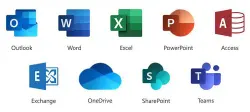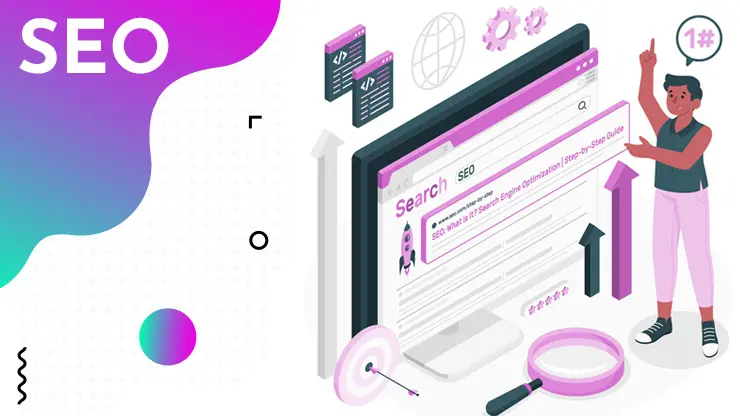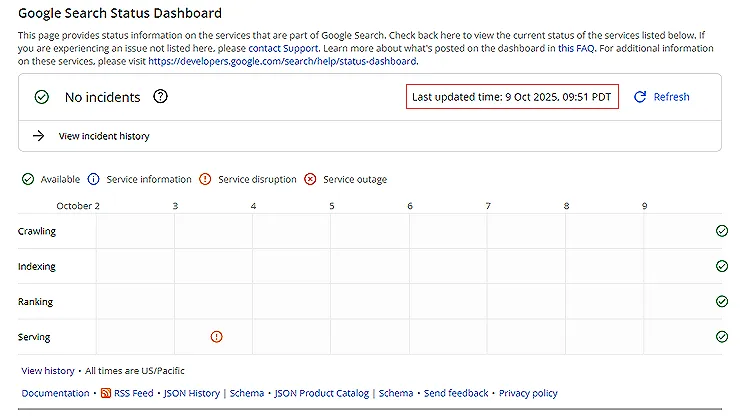In the vast digital landscape, maintaining high visibility in Search Engine Results Pages (SERPs) is essential for businesses and creators seeking to connect with their audience. But achieving a better search ranking isn’t just about luck—it’s the result of a well-executed SEO strategy. Whether you’re a small business owner, e-commerce company, marketing manager, a content creator looking to grow your audience, or even a corporate enterprise dominating your industry, understanding and implementing these key factors can significantly impact your online visibility.
In this analysis, we’ll explore the critical factors influencing search rankings and offer actionable ideas to optimize your site for better results.
Content Quality and Relevance
When it comes to SEO, content is king. Search engines prioritize delivering high-quality, relevant content to users—content that satisfies their search intent and provides genuine value.
Actionable Tips:
- Create User-Focused Content: Understand your target audience’s pain points and provide actionable solutions. For example, if you’re a local service provider like a plumber, a blog post titled “5 Common Plumbing Problems Homeowners Face (And How to Solve Them)” can attract users searching for help with repairs.
- Use Keywords Effectively: Perform keyword research using tools like Google Keyword Planner, Ahrefs, or SEMrush to find what your audience is searching for. For example, an e-commerce store selling handmade jewelry can focus on phrases like “unique handmade necklaces” or “custom gold earrings.”
- Content Refresh: Regularly update older content to maintain relevance. A marketing manager can revisit their “2020 Social Media Trends” post and update it for 2024 to keep it useful and timely.
- Long-Form Content Wins: Posts that delve deeply into a topic (1,500-2,000 words) often perform better. Non-profits could create comprehensive guides on topics like “How to Organize a Local Charity Event on Budget.”
On-Page SEO Factors
Optimizing elements like title tags, meta descriptions, internal links, and header tags gives search engines more context about your website. Ignoring on-page SEO is like serving a great dish but forgetting to tell people what it’s called.
Actionable Tips:
- Optimize Meta Tags: Write engaging, keyword-rich title tags under 60 characters. For a developer’s blog, something like “10 Tips for Faster Website Load Times | Free Checklist” works well.
- Craft Compelling Headlines: Use header tags (H1, H2, etc.) to structure your content while naturally incorporating keywords. Content creators and bloggers can use headers like “Why SERPs Matter for Bloggers: Key Insights” to improve readability and SEO.
- Leverage Internal Linking: Link to relevant pages on your website to improve navigation and SEO juice. An e-commerce company might link a blog about “The Best Winter Coats” to their winter clothing category page.
- Include Visual Content: Optimize images with descriptive alt tags. For instance, if you’re a web designer, label an image as “responsive website design for real estate businesses.”
Technical SEO
Technical SEO ensures that search engines can easily crawl, index, and understand your website. If your site isn’t technically sound, your rankings will suffer—even if your content is top-notch.
Actionable Tips:
- Improve Site Speed: Use tools like Google PageSpeed Insights or GTmetrix to assess your page loading times. Compress images using apps like TinyPNG or integrate lazy loading for faster speed. A small business website should load within 2-3 seconds to keep visitors engaged.
- Mobile Optimization: Considering Google’s mobile-first indexing, ensure your website works seamlessly across devices. Example: A local service provider like a cleaning company might lose leads if their “Get a Quote” button isn’t accessible on mobile devices.
- Fix Errors and Broken Links: Use Screaming Frog to identify crawl errors or broken links, ensuring smooth navigation for visitors. Broken links are particularly damaging for an e-commerce site, where users expect streamlined paths to product pages.
- Add Schema Markup: Help search engines understand your content better by implementing structured data. A non-profit organization can add schema to highlight organizational details, donation options, or upcoming events in SERPs.
Backlinks and Authority
A robust backlink profile signals search engines that your content is credible and valuable. Think of backlinks as votes of confidence from other reputable websites.
Actionable Tips:
- Earn High-Quality Backlinks: Focus on earning backlinks from niche-relevant, high-domain authority websites. Startups can collaborate with industry blogs for guest posts. For example, a fitness startup might pitch a guest post titled “Top 5 Office-Friendly Exercises to Stay Productive.”
- Digital PR Campaigns: Create press releases or build partnerships with local news outlets for mentions. A non-profit hosting a charity drive could send a release to local media for coverage.
- Resource Pages: Offer whitepapers, guides, or toolkits. A corporate enterprise could create a timeless resource like “The Ultimate Guide to Enterprise Cybersecurity.”
- Monitor Your Backlinks: Use tools like Ahrefs to track backlinks to ensure your profile remains clean and disavow harmful links if necessary.
User Experience (UX)
Search engines prioritize websites that provide a seamless, enjoyable experience for visitors. A good UX encourages users to stick around—and this directly impacts rankings.
Actionable Tips:
- Simplify Navigation: Organize menus logically and avoid clutter. For an e-commerce store, use categories like “Men,” “Women,” “New Arrivals,” and “Sale” instead of vague options.
- Minimize Pop-Ups: Intrusive pop-ups can frustrate users. Instead, use polite exit-intent pop-ups to offer discounts or collect emails—key for startups building their email lists.
- Improve Accessibility: Implement accessibility best practices, like proper contrast levels and screen-reader-friendly content, to ensure inclusivity. This is critical for non-profits that want their message to reach broader audiences.
Local SEO Factors
If your goal is to appear in location-specific searches (think “near me” queries), local SEO is paramount.
Actionable Tips:
- Claim and Optimize GMB (Google My Business): Add accurate information, business hours, photos, and customer reviews. A local service provider like a roofing company could update GMB with project photos and a map pin that accurately represents their service area.
- Generate Positive Reviews: Encourage customers to leave reviews on Find Me Directory and Google. Respond thoughtfully to both positive and negative reviews to build credibility. Small businesses can incentivize feedback by offering discounts for verified reviews.
- Use Location Keywords: Integrate phrases such as “SEO services in Brooklyn” or “best coffee shop in Austin” throughout your website.
- Analytics and Performance Tracking
Regularly monitoring your website’s performance is essential to refine your strategies and achieve long-term success.
Actionable Tips:
- Set Up Google Search Console and Analytics: Monitor key metrics like organic traffic, keyword rankings, and user behavior. Marketing managers can use this data to identify what is or isn’t working.
- A/B Testing: Experiment with calls-to-action, page layouts, or forms. For example, an e-commerce company can test different layouts for their checkout page to reduce cart abandonment rates.
- Competitor Analysis: Use tools like SEMrush or SpyFu to study competitor strengths, gaps, and top-performing keywords, then incorporate similar tactics or capitalize on keywords they’re missing.
Focus on user experience, content quality, and technical performance—these are the pillars of a successful SEO strategy.
Final thoughts
Improving your website’s search rankings and visibility in SERPs may seem daunting, but by addressing these factors—content quality, on-page and technical SEO, backlinks, UX, local SEO, and analytics—you can create a search-optimized digital experience for your audience.
Remember, whether you’re a local business wanting more foot traffic, an e-commerce store aiming for higher conversions, or a corporate enterprise seeking to dominate your industry, SEO is a continuous effort. Audit regularly, implement improvements, and adapt to search engine updates.
Take Action Now
Struggling with your website’s rankings? Let our SEO experts help you climb the SERPs. Contact us today for a free consultation!










